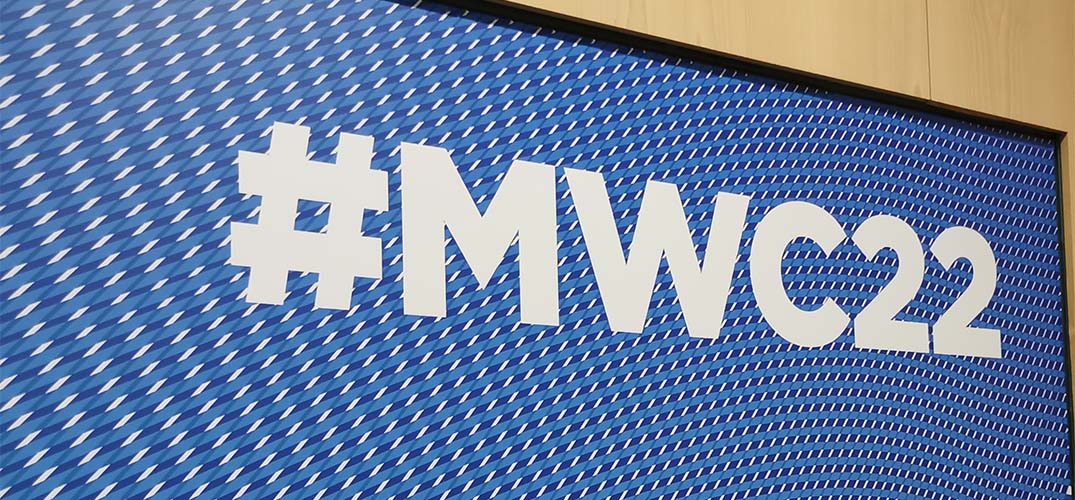Kathy Gibson is at Mobile World Congress 2022 – Despite the many benefits that technology has brought us, people still don’t really trust it.
That’s according to José María Álvarez-Pallete, chairman and CEO of Telefónica, and a board member of the GSMA, addressing delegates at Mobile World Congress today.
“We live in an era of conflict and our society has lost its optimism,” he says. “It seems to many that climate change is now irreversible and people think digitalisation will cost them their jobs, or impose alien values on them.
“These concerns are despite the immense material progress technology has brought us over the last 200 years,” Alvarez-Pallete adds. “Our lives today are longer, healthier and more comfortable than our grandparents.
“For the first time, the complete obliteration of hunger and poverty could be achieved – and the world is more connected than ever.”
Despite these advances, we are losing faith in ourselves and in the future, he believes.
“This is not arbitrary: there are reasons it is happening,” Alvarez-Pallete says. “The link between material and mythical progress has been blurred. Technology lacks values – it gives us the power to change the world and do more things, but it can be used for good or bad.”
There can be no doubt of the power technology wields, and the fact that this can be used for positive change, he adds.
He argues that the role of the telecommunications sector in the era of superconnectivity will be even more decisive. “We are the gateway to the future. Telecommunications make possible all that is to come. Nothing will happen without us in the digital era.”
But he also emphasises the importance of addressing the needs of operators: “We respect all the players in the new economy. But we also deserve respect. It is impossible to face the new times with the old rules. Our sector is not asking for privileges, just for justice.”
Data traffic is growing by up to 50% annually, so the investment challenge is huge, Álvarez-Pallete says. “The burden of investment needed to handle this increasing volume of traffic should sit fairly with those that impose it.”
Álvarez-Pallete stresses that the digital world needs to be a better one, and that this will require collaboration, co-operation, solidarity, responsibility, sustainability and dignity.
“To deliver a new era of superconnectivity we need a new framework; a new era of hypersector collaboration,” he says.
Álvarez-Pallete proposes a new social contract between science, business and society. “Improvements have always come when we have driven progress. When we have trusted in the future. When our society has felt it owns the advances of the scientific community and the business ecosystem. This is what makes it possible to industrialise knowledge and create new services – when states and companies have worked together.
“By being positive. I am optimistic. Maybe, worried optimistic, but optimistic,” he says.
The fundamental role of the telecommunications sector in defining the new digital era and the world of superconnectivity cannot be overstated, Álvarez-Pallete believes: “The world needs a strong and sustainable telco industry. Nothing that is to come will happen without us. We are the ones who have the capacity and the responsibility to build the infrastructures, the networks of the future.
“We have made, and keep on making, possible all new digital services. We have made, and keep on making, connectivity affordable. We have digitalised and keep on digitalising the world.
“We have been, and continue being, essential during the pandemic and always. Without us, the deepest technological revolution in human history would not have happened.”
The role of the telecommunications sector simply cannot be over-emphasised, Álvarez-Pallete says. “No other industry has contributed to the economic and social welfare as telecommunications. Without us, everything would be worse and many people would be left behind forever, for good, caught in the technological disruption gap.”
The industry’s contribution is also critical to creating a more sustainable and efficient world. “Climate change is the major challenge humanity is facing. Our industry has an enormous amount to contribute. In simple terms, there is no energy transition without digitisation,” he says.
The new era of digitalisation is already showing its potential, but the greatest progress is yet to come. “This is just starting. Ultrabroadband connectivity is already here,” Álvarez-Pallete says.
“Processing and storage capacity are growing exponentially and moving to the cloud. Virtual, augmented, and enhanced reality are changing how we experience everything. Internet of Things and Big Data are producing and handling huge amounts of data.
“And more is coming: blockchain, quantum computing, cybersecurity, edge computing, stand-alone 5G and artificial intelligence. A new immersive world is almost here with Web3 and the Metaverse, which are already delivering mind-blowing disruption.”
In this new era, we can’t lose sight of the human and social dimension, Álvarez-Pallete says. “Human beings must never be categorised by their access to digitisation. There should be no distinction between those who have the access to the new digital world and those who do not.
“If we do it right, this digital revolution will bring social progress,” he says. “Because the digital world must be a better world. It is our collective responsibility to spread the benefits of digitisation and make sure that we do not leave anyone behind.”
In enabling this new world, Álvarez-Pallete calls for collaboration and urges the private and public sectors to strengthen ties and unify their views so that “together we are capable of not building walls, but opening doors.
“Together, our strength and ambition are greater,” he says. “Together, we will achieve the greatest challenges. Together, we can do incredible things and deliver incredible benefits for all.”

